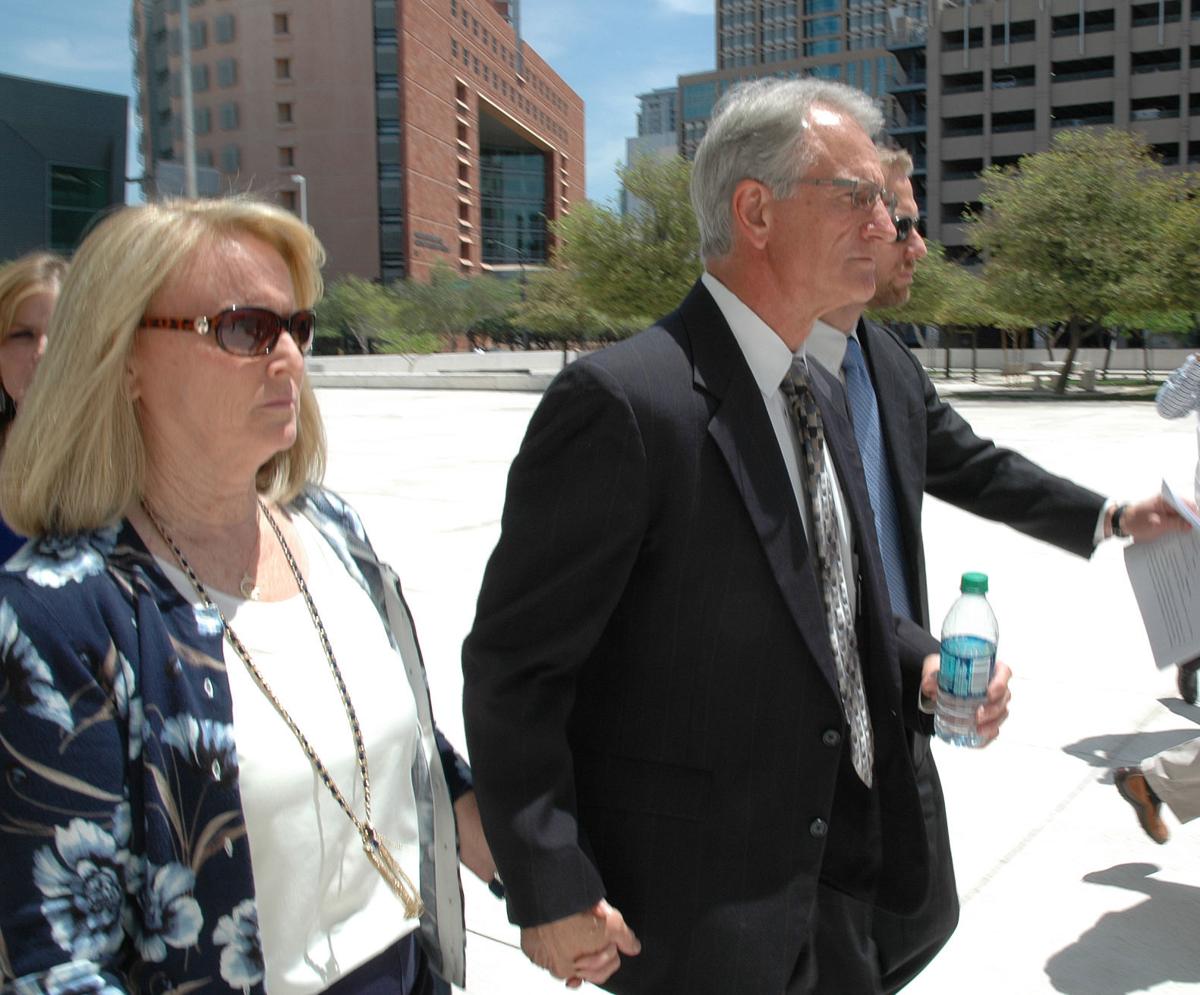PHOENIX — The admission by a juror in the Corporation Commission bribery trial that she made some notes at home and brought them to deliberations could lead to a new trial even after all the testimony has been heard.
In new legal filings Monday, attorneys for the defendants urged U.S. District Court Judge John Tuchi to question not only the juror about her but the other 11 with whom she may have shared them during ongoing deliberations. They want to know if jurors have been “infected” by outside information.
And Patricia Gitre, the attorney for Gary Pierce who crafted the request, said federal law requires more than just an inquiry. She told the judge that a new trial is required when jurors have information from outside the court that could affect the verdict.
It isn’t just the confession of Juror 7 about bringing in some notes she prepared at home.
Gitre said jurors have been home more than they’ve been deliberating. That’s the result of not just a week-long break the judge gave the panel for the July 4 holiday but schedule conflicts in getting all 12 together.
In the interim, she said, publicity about this case and related problems for the water and sewer company owned by George Johnson, another defendant in this case, has been “ongoing and extensive to the point of abnormality.”
“This ongoing negative publicity, the jury’s deliberation schedule, and the additional information that at least one of the jurors may be conducting her own research, or at the very least, creating her own work product, and sharing it with other jurors, affects the defendants Fifth and Sixth Amendment constitutional rights,” Gitre wrote, referring to the rights of due process and an impartial jury.
“The defendants’ freedom is at stake,” she said.
Gitre said jurors are supposed to meet again Tuesday, July 17, five days after the last time they got together. She said the time is now for the court to see whether, given all the circumstances, the defendants can get a fair trial.
The case surrounds an indictment that alleges that Johnson, who owns a utility that bears his name, funneled money to Pierce, then a member of the commission, in exchange for his favorable vote on two issues of financial concern. One involved the ability of utility owners to pass along the costs of their personal income taxes to ratepayers; the other increased the book value of the utility, resulting in higher rates.
Also charged are lobbyist Jim Norton who is alleged to have arranged the scheme, and Sherry Pierce who got paid $31,500 from Johnson. That money, according to the indictment, came from Johnson through Norton’s now ex-wife Kelly, who was not indicted in exchange for her testimony.
It’s not just the notes Juror 7 brought in from home.
Gitre said there are “political influences, ongoing heavy and influential media coverage” as well as the delays in the ability of jurors to deliberate as a team of 12.
And there’s something else. She said federal prosecutors are using this case “as a springboard to launch new cases” against not only these defendants but “others in pending investigations.”
Federal prosecutors have provided no details of any other probes. But before the trial started, they offered plea agreements to both Gary Pierce and Jim Norton, providing for no prison time in exchange for their cooperation in other cases; both rejected the deals.
The new defense maneuver will get a fight from federal prosecutors.
In a response filed late Monday, Assistant U.S. Attorney Frank Galati reminded Tuchi that he looked at the issue last week and concluded that “no basis exists” to question Juror 7 “or to otherwise intrude upon the jury’s ongoing deliberations.”





